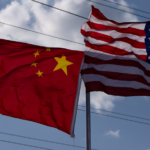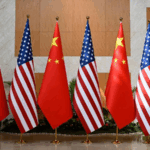2023 saw U.S.-China relations swing like a TikTok trend—from the dramatic ‘spy balloon’ saga 🎈 to cautious optimism after military talks resumed. But as 2024 looms, experts warn America’s ‘enemy addiction’ could derail progress. Here’s why 🔍.
Radhika Desai, a political studies professor, points to a cycle rooted in U.S. history: ‘When the Soviet Union fell, the U.S. needed a new villain.’ Post-9/11, it was terrorism; now, China’s become the target 🎯. Why? Blame the military-industrial complex, she argues—a system craving ‘reliable enemies’ to fuel its profits 💸.
Cue Congress’s anti-China playbook. Over 550 China-related bills flooded the 116th Congress—more than 4x the post-9/11 anti-terror proposals. The Innovation and Competition Act of 2021, meant to boost U.S. tech, now doubles as a battleground to counter China’s global influence 🇨🇳 vs. 🇺🇸.
Desai compares this to McCarthy-era paranoia: ‘Today’s red scare isn’t about communism—it’s about China.’ But this approach risks self-sabotage. While reshoring jobs sounds good, overhyping rivalry could stifle climate cooperation, AI ethics, and more 🌐.
Bottom line? ‘U.S. fear of China may hurt itself more,’ warns Desai. As both nations navigate 2024, one thing’s clear: In a world of TikTok diplomacy and AI races, collaboration beats cold war 2.0 🤝✨.
Reference(s):
cgtn.com




